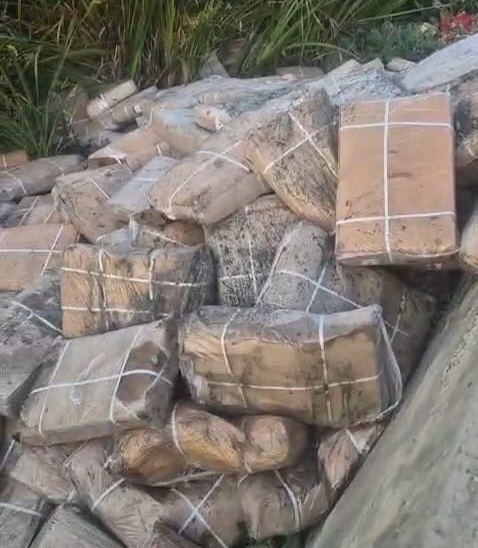Kashmir’s vibrant food culture, once a symbol of community, celebration, and tradition, is now clouded with suspicion and fear. A shocking discovery of rotten and substandard meat — seized from various food units and dumped in public areas — has left residents appalled and eateries nearly deserted.
In the past few days, authorities have confiscated over 3,000 kilograms of spoiled meat from across the Valley. On Saturday alone, hundreds of kilograms were found dumped near SKIMS Hospital in Soura — an incident that still sends shivers down the spine of many.
The aftermath has been both visual and visceral. Residents reported seeing heaps of decayed meat lying by roadsides in Srinagar, an image that quickly spread on social media, igniting outrage and disgust.
“I feel utterly betrayed,” one local wrote online. “We trusted these eateries with our families’ health, and now I’m wondering how long we’ve been served this garbage.”
Greater Kashmir’s visit to Lal Chowk on Saturday revealed a scene unthinkable just weeks ago: tables empty during peak lunch hours. The usual weekend buzz had been replaced by silence.
Sameer Ahmad from Pampore, usually a fan of street food, avoided his favourite eateries. “After watching those videos, I couldn’t bring myself to eat outside. I just bought fruits instead,” he admitted.
In a land where meat is not just food but identity, some are turning to vegetarian options for the first time. Amir Bashir of Nowhatta shared, “I ate at a vegetarian restaurant — not my choice, but I needed peace of mind.”
Takeaway culture has also taken a hit. Ready-to-serve Wazwan dishes like kebabs, ristas, and goshtabas — staples for hosting guests — are being skipped. “I’d rather cook at home,” said Shazia from Nishat.
Honest business owners are feeling the pinch too. Yasir Ahmad, a Bemina restaurant owner, said, “The wrongdoings of a few are hurting everyone. I serve fresh food, but customers are too scared. Authorities need to check every outlet and protect genuine vendors.”
The scandal has sparked calls for long-term reform. Civil society members and locals are urging the government to establish a strict inspection and certification system, ensuring only safe, high-quality meat reaches the market.
The message from the streets is clear: trust, once broken, is hard to restore — but protecting public health must remain non-negotiable.




